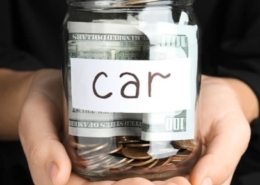10 Things to Consider Before Buying Your First Car
Navigate first-time car buying effortlessly with these tips – budgeting, research, and joy of finding your perfect ride!
Understanding Your First Car Buying Experience
Embarking on your first car-buying journey can be akin to navigating uncharted waters. Whether you’re a fresh graduate landing your first job or someone stepping into car ownership for the first time, uncertainties are bound to creep in.
Bid farewell to the nostalgia of your high school hand-me-down or skateboard; it’s time to embrace a new chapter.
Becoming a savvy first-time car buyer may not be a walk in the park, but the rewards are worth the effort.
First-Time Car Buying Tip: If you’re looking for your first car, you may have noticed that finding a reasonable price can be difficult in today’s market. Many car buyers end up paying more than the suggested retail price. But don’t worry! You can still get a great deal on your first new vehicle by requesting a free car price quote to compare dealer prices in your area.
Unraveling the Evolution of Car Buying with Henry Ford
The journey of car buying unfolds alongside the birth of automobiles. Although Henry Ford isn’t the inventor, his impact is undeniable.
Picture Henry Ford, under a banner proclaiming “Ford’s Pioneering Rides,” passing the keys to a recent technical college grad.
This whimsical scenario sets the stage for our guide, where we’ve curated essential tips on car selection, purchasing strategies, and the starting point for your unique journey.
10 Things to Consider Before Buying Your First Car
Embarking on the journey to buy your first car is an exciting milestone, but it’s essential to tread carefully in the vast landscape of choices.
Here are ten crucial considerations that every first-time car buyer should ponder before making this significant investment.
1. Establish Your Budget and Down Payment
Establishing a realistic budget is the cornerstone of a successful car purchase.
Ideally, paying in cash is the way to go, but financing often becomes a necessary evil.
Calculate your cost of living, factoring in essentials like shelter, food, health insurance, and happy hour.
Research the actual cost of car ownership and gauge the overall expenses associated with owning a car.
You must also determine how much money you will invest towards your new vehicle.
Many dealerships run “Zero Money Down” ads. Not putting money down on a first-time car purchase may cost you more in the long run and may prevent you from being approved.
You should aim for 15-20% of the purchase price of the vehicle you would like to buy.
- How to Buy a New Car Below Factory Invoice Price – True dealer cost and the factory invoice price are not the same… dealer cost can be much lower.
- Figure a Fair Profit New Car Offer – How to calculate a fair profit new car offer.
- How to Buy a New Car Online – Not sure where to start? Use my step-by-step guide on how to buy a new car online.
2. Pin Down Your Monthly Spending Capacity
Distinguish between your overall indebtedness and your monthly commitment.
For first-time buyers, both should align with your financial standing.
If financing is on the cards, understand that $25 per month is the norm for every thousand dollars borrowed over 48 months and $20 for 60-month financing.
This forms the base obligation, with additional insurance, fuel, and periodic maintenance costs.
3. Define Your Transportation Needs
Resist the allure of short-term enthusiasm and assess your long-term transportation needs.
While a MINI Convertible or Ford Bronco Sport might seem enticing, consider the practicality of day-to-day use.
Please don’t succumb to the temptation of an SUV or pickup unless it aligns with your genuine requirements.
Sometimes, renting can be a cost-effective alternative for occasional needs.
Real-Time Bargain Hunting: Turn to Edmunds for instant access to the latest and greatest local deals, saving you time, money, and stress.
4. Identify and Prioritize Your Desires
Balancing your wants with practicality is key. Your first car doesn’t have to be the be-all and end-all.
Please pay attention to your wish list, but be mindful of the long-term satisfaction it brings.
If stretching your budget slightly fulfills your desires, consider it an investment in your driving happiness.
Additionally, explore options like purchasing a used or certified pre-owned vehicle.
Pro Tip: If you buy a pre-owned car that is a couple of years old, you may get a vehicle with a lot more “bells and whistles” at a much lower price.
Related: How to Buy a Used Car
5. Dive into Online Research (It’s Easier Than You Think)
Amidst the plethora of free car-buying tools, online research is your best friend.
Research new cars and their late-model alternatives, balancing the data with the gut or trusted instincts of someone experienced.
Actively seek advice from current owners, and don’t shy away from expert car reviews.
Related: How to Research New Cars Online
6. Scout for a Dealer That Fits Your Style
Buying your first car doesn’t have to resemble a daunting medical procedure.
While skepticism about car salespeople is understandable, many are just regular people.
Prioritize dealerships with accessible locations and welcoming showrooms. Check a dealership’s reputation online.
This will give you an idea of what to look out for if you are pinned down to just a few dealerships in your area.
Avoid places where the sales staff congregates at the entrance.
A comfortable buying experience goes a long way.
7. Take the Wheel: Test Drive Matters
In the age of online information, the significance of a test drive can be underestimated.
Nothing beats the firsthand experience of being behind the wheel.
Consider seat comfort, steering wheel feel, and overall driving experience.
Allocate a substantial amount of time for diverse driving scenarios, from stop-and-go to freeway speeds (drive it like you own it).
8. Nail Down the Right Purchase Price
Once you’ve found your ideal car and assessed affordability, it’s time to determine the purchase price.
Refer to resources like the RydeShopper and Edmunds for a realistic overview of local pricing.
These online vehicle research sites allow consumers to request free price quotes, including rebates and incentives.
Seek perspective and pre-qualification from a credit union.
When negotiating at the dealership, stick to your overall budget rather than revealing a per-month figure. This ensures negotiation flexibility.
Related: How to Buy a New Car
9. Financing – Knowledge is Power
Navigating auto financing can be as crucial as determining the purchase price.
While resources abound, your credit history (or lack thereof) may pose challenges.
Don’t be at the mercy of a dealership’s Finance and Insurance manager.
Consult your credit union, bank, or online lenders for the best rates.
Being informed puts you in control, ensuring a fair financing deal.
10. Enjoy the Ride
Despite the practical considerations, buying a car can be an exciting adventure.
The variety of options and the creativity in today’s automotive landscape can stimulate even those indifferent to cars.
With the proper financing rates and many great cars, take your time.
The delight of the first 48 (or 60) monthly payments is an experience worth savoring.
Whether you’re a recent graduate or a novice car buyer, these tips will give you the insights you need to make your first purchase successfully.
Enjoy the Ride!
FAQs About First Time Car Buying
What is the first step for a first-time car buyer?
Start by establishing a realistic budget, factoring in your monthly income, living expenses, and potential loan rates.
Is it better to buy or finance my first car?
While paying in cash is ideal, financing is a standard option. Evaluate your financial situation and choose the option that aligns with your needs and plans.
How do I determine the right type of car for my needs?
Identify your transportation requirements and prioritize features. Consider daily commuting, storage needs, and fuel efficiency to guide your decision.
Should I buy a new or used car for my first purchase?
Both options have merits. New cars offer the latest features, while used vehicles provide cost savings. Assess your preferences, budget, and the reliability of the models you’re considering.
What documents do I need for the car-buying process?
Typically, you’ll need identification, proof of income, and insurance. Check with the dealership for specific requirements and be prepared to complete the necessary paperwork.
Can I negotiate the price of my first car?
Yes, negotiating is common. Research the fair market value using resources like RydeShopper and Edmunds and be prepared to discuss pricing with the dealer. Be firm on your budget and open to compromises to secure a favorable deal.
In conclusion, first-time car buying is not just a financial transaction; it’s an exhilarating journey marked by important decisions and personal preferences.
Armed with insights on budgeting, research tactics, and navigating dealership complexities, you are now better equipped to make informed choices.
Remember, finding the perfect ride goes beyond the mechanical details—it’s about the joy and satisfaction that accompany every turn of the key.
Happy driving on this exciting road to your very first car!
















